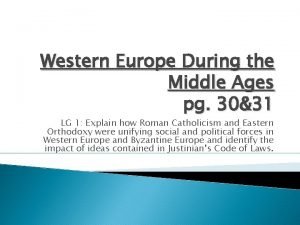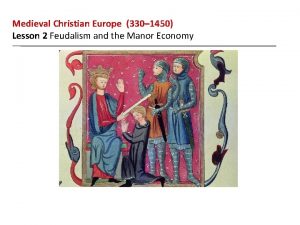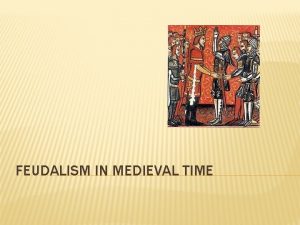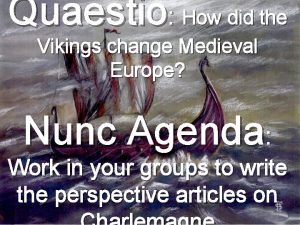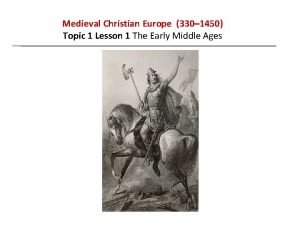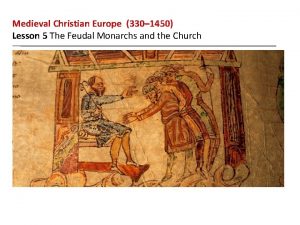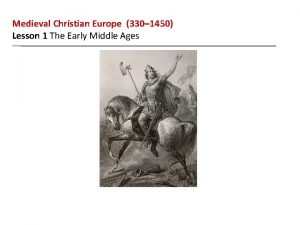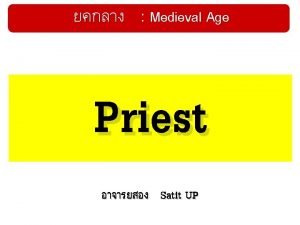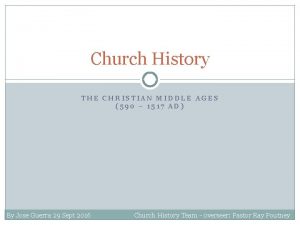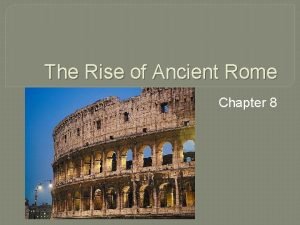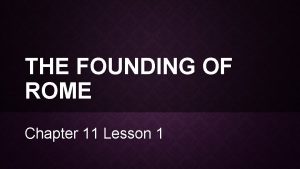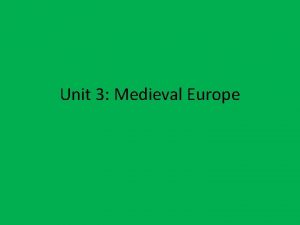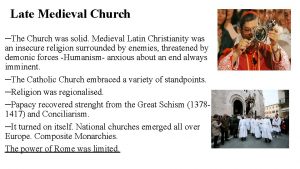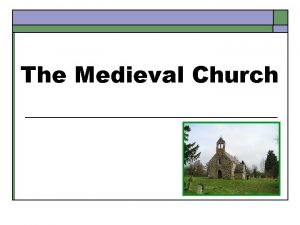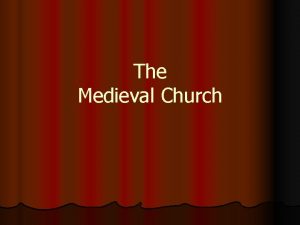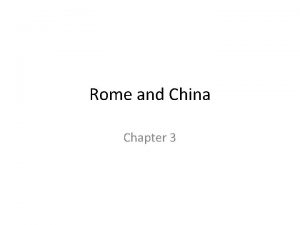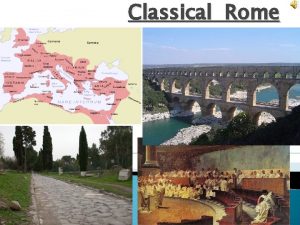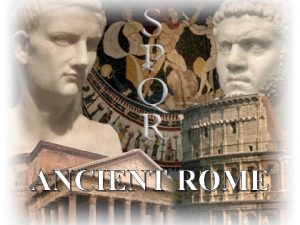Medieval Europe Chapter 8 Medieval Church Rome has










- Slides: 10

Medieval Europe Chapter 8

Medieval Church • Rome has fallen – order & stability are gone. • Rome’s former culture is in ruin (trade, science, learning) • Roman Catholic Church remained as the one stable institution which covered all of Europe • Church becomes the center of medieval life

Medieval Church • Church has two meanings: 1. Local church 2. Universal “Body of Christ” (Eph. 1: 22 -23) • Early Christians describe the spiritual church as “catholic” = means universal • Church calls noteworthy Christians = saints

Medieval Church • Rome became epicenter of Roman Church (along with Jerusalem, Antioch, Alexandria, Constantinople) • Roman bishop was one source of stability left. • Bishop Leo I (Rome) persuades the Hun leader Attila to spare the city. Leo I is called papa or pope. (“Father-protector”)

Medieval Church • Petrine Theory: that Jesus built the foundation of the church on Peter (Matt 16: 18 -19). Thus, Peter is the first bishop. • Middle Ages is often called “age of faith” – religion dominates society. • Most people could not read; relied on clergy to teach & interpret the Bible • Clergy vs. Laity

Medieval Church • Vicarius Filii Dei = the one who takes the place of the Son of God. • Catholic Church argued that traditions of the church had equal authority as Scripture • Bible is translated into Latin by Jerome = called “Vulgate”

Medieval Church • Roman “Sacramental System” The church has exclusive right to administer the sacraments = acts that automatically grants grace 1. Baptism – baby baptized 2. Confirmation – enter the church fellowship 3. Penance – ask forgiveness of sins 4. Holy Eucharist – wine & bread becoming the blood and body of Christ = “transubstantiation” 5. Matrimony - marriage 6. Holy Orders – becoming a priest 7. Last rites - death

Medieval Church • Benedict of Nurisa (Father of Western Monasticism) creates Benedictine Rule • Daily activities of manual labor, study, religious services, prayer • Benedict monks took vows of poverty, celibacy, and obedience to the leader

Medieval Church • Patrick: 1 st missionary to Ireland Taken captive as a slave to Ireland Uses shamrock (clover) to explain Trinity • Boniface: missionary to Germany • Denis: missionary to France Has his head chopped off only to pick it up and walk 10 km while preaching • Gregory I “the Great” – first true pope

 Who was the leader of the franks
Who was the leader of the franks Typical manor house in medieval europe
Typical manor house in medieval europe Lord hierarchy
Lord hierarchy How did the vikings change medieval europe
How did the vikings change medieval europe Topic 1 medieval christian europe
Topic 1 medieval christian europe Unit 8 lesson 5 medieval christian europe
Unit 8 lesson 5 medieval christian europe Medieval kingdoms in europe lesson 1
Medieval kingdoms in europe lesson 1 Hierarchy middle ages
Hierarchy middle ages The medieval church (590-1517 ce)
The medieval church (590-1517 ce) Rome chapter 8
Rome chapter 8 Chapter 11 lesson 1 the founding of rome answer key
Chapter 11 lesson 1 the founding of rome answer key
